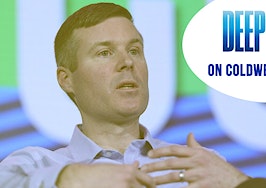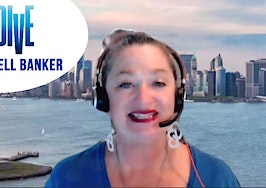All week, Inman is taking a Deep Dive into Coldwell Banker. We’re talking to key executives, unpacking the company’s strategic moves and reporting on the Gen Blue Experience event — taking place virtually and in New York this week. Stay tuned in the coming days for more on Coldwell Banker, and for future Inman Deep Dives into top brokerages.
When Ricardo Rodriguez first started using Instagram, he assumed it would be a good way to promote listings.
Today, however, the Boston-based Coldwell Banker broker has more than 5,600 followers on the platform. And it has become a major source of business.
“It’s an incredible source of lead generation,” Rodriguez said Tuesday. “And I started seeing that really in the past three years. I discovered my clients are on Instagram.”
Rodriguez made the comments during a panel discussion on real estate and storytelling that was part of Coldwell Banker’s Gen Blue Experience — an annual event that this year took place both virtually and live in New York City. The discussion touched on an array of platforms and best practices, but the takeaway was clear: Agents all have it within their ability to harness social media, and doing so can be a major boon to their business.
Here are three tips the panelists shared Tuesday:
Don’t get overwhelmed
Rodriguez pointed out during the conversation that there are numerous social platforms including Facebook, LinkedIn, Instagram, YouTube and others. But in his case, he has found that Instagram has the greatest potential to work for his business.
“I think Instagram is truly the most fitting platform for real estate because our business is so visual,” he said. “We’re producing content without knowing it. We’re taking all these photos and videos.”
Stephanie Apessos, a vice president at luxury media company Modern Luxury, agreed about the potential of Instagram.
“I think for the purpose of this industry, Instagram is probably the best bet,” she said during the panel.
The panelists use other platforms, of course, but their point was that real estate professionals don’t need to be everything on all platforms at once. Instead, it’s worth starting with a narrow focus and figuring out how to do really well in a limited number of places. Which platform is best may vary, but Apessos advised real estate professionals to survey their clients to see where exactly to focus their energy.
“Find out where your audience is,” she said. “Then you know where to put all of your effort.”

Clockwise from top left, Stephanie Apessos, Elizabeth Cao, Raquel Cadourcy and Ricardo Ricardo Rodriguez appear at Coldwell Banker’s Gen Blue Experience Tuesday. Credit: Coldwell Banker
Focus on video
One reason the panelists focused on Instagram, they went on to explain, was because the platform has recently leaned into video — which is a medium that works especially well with real estate.
“Video is just the way to go right now,” Apessos said. “I believe that Instagram is the platform for video right now, especially for this demographic.”
That said, Apessos also said she is a fan of any platform that enables “short form mobile video.”
Presumably, that would also include TikTok, which has exploded in popularity over the last two years, as well as more established platforms such as Facebook and YouTube. Whatever platform an agent chooses to use, though, Rodriguez said the objective is to tell a story.
“Storytelling is truly at the heart of real estate,” he said. “Real estate is about connection. It’s about connecting with your audience.”

Clockwise from top left, Stephanie Apessos, Elizabeth Cao, Raquel Cadourcy and Ricardo Ricardo Rodriguez appear at Coldwell Banker’s Gen Blue Experience Tuesday. Credit: Coldwell Banker
Be authentic
Raquel Cadourcy, chief marketing officer at Modern Luxury, also appeared on Tuesday’s panel and said real estate agents looking to up their social media game should “find your niche and lean into it.”
“Lean into content that is really authentic to you,” she said. “Lean into your niche. Lean into your personal passions.”
Authenticity was a recurring theme during the discussion, with the takeaway being that agents don’t need to pretend to be someone they aren’t.
“Avoid topics that aren’t natural to you,” Cadourcy added. “People can spot fake easily.”
Rodriguez agreed.
“Create content that is authentic and that is organic and that is relatable,” he said. “At the end of the day, you are your best advocate.”













